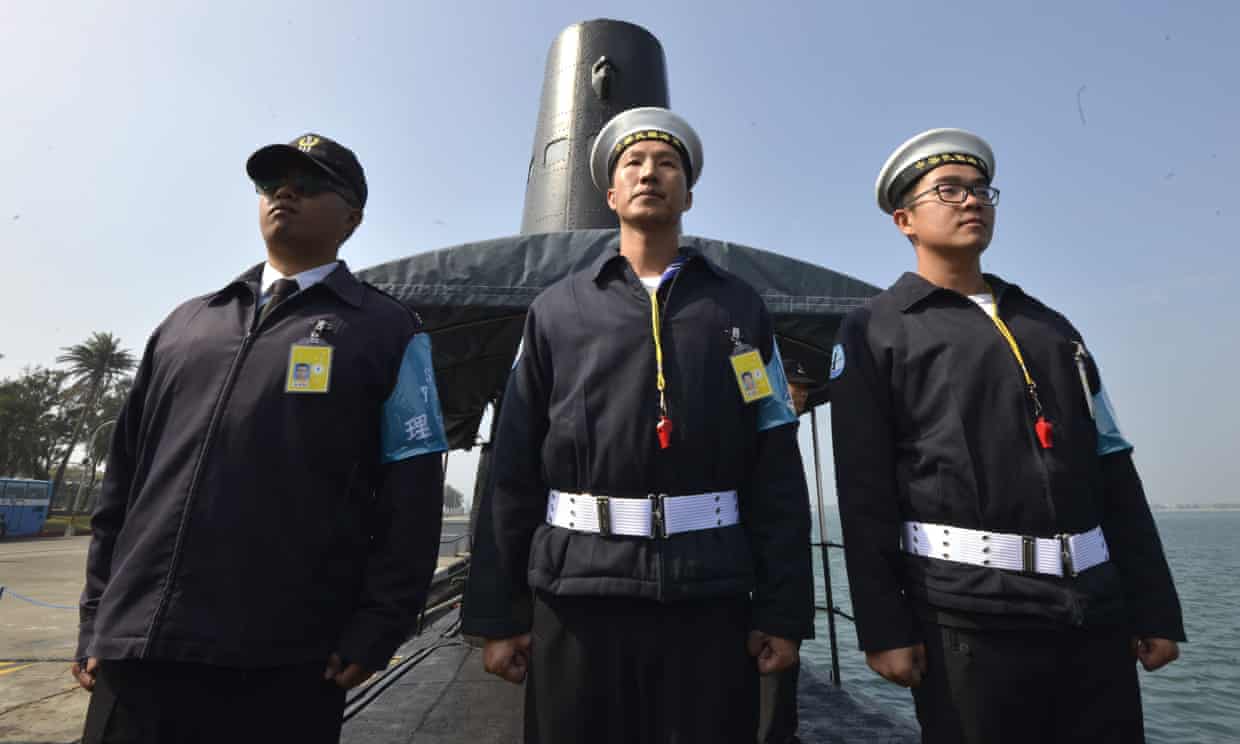Taiwan carries out drills amid rising fears of Chinese invasion
The Guardian
The island’s armed forces test combat readiness, amid deteriorating relations between Beijing and Taipei
The Taiwanese military is preparing for a Chinese invasion as fears grow about the impact that future Donald Trump policies towards Beijing may have on regional stability.
A two-day military drill that began on Tuesday simulated an attack by the People’s Liberation Army across the 112-mile (180km) Taiwan strait that separates the mainland from the island nation of 23 million, amid deteriorating relations between Beijing and Taipei.
The island’s armed forces gathered in Taichung, central Taiwan, for annual drills that saw troops test their combat readiness with tanks, attack helicopters and artillery. Skydivers, known as Team Mighty Dragon, also demonstrated their precision landing skills.
The operation mimicked a scenario where Chinese war vessels had crossed over the middle line of the Taiwan strait.
“The military has active measures to deal with the situation in the Taiwan strait and the South China Sea, so the public can rest assured,” defence spokesman Chen Chung-chi said. “We will enhance training 365 days a year.”
The drills come one week after China set off alarm bells in Taiwan by sailing its only aircraft carrier, the Liaoning, through the strait, accompanied by a fleet of warships.
The Liaoning did not sail in Taiwanese waters, but entered an area covered by the island’s air defence zone. It was a show of strength that prompted Taiwan’s air force to scramble its fighter jets to “surveil and control” the passage of the fleet.
The Taiwanese government, led by the president, Tsai Ing-wen, has sought to reassure the public over growing Chinese military threats following an unprecedented call with Trump, the incoming US president, in December.
The call smashed decades of protocol that have prevented direct engagement between the two presidents since the US switched its diplomatic recognition of China from Taipei to Beijing in 1979.
China considers Taiwan, a self-ruled democracy, as a breakaway province that will eventually be reunited with the mainland, by force if necessary. It views any attempts to recognise Taiwan identity as an attack on its sovereignty.
In recent weeks Trump has angered the Chinese government by intimating that its “One China” policy could become a bargaining chip in future trade talks.
On Monday, one government-run Chinese newspaper warned that if provocation over Taiwan continued, China would be forced to “take off the gloves”.
In addition to the drills, the air force has confirmed an upgrade of Taiwan’s 143 F-16 fighter aircraft.
The defence minister, Feng Shih-kuan, also recently called for increased vigilance over China, urging the island’s youth to join the military.
Ross Darrell Feingold, from Taipei-based political risk consultancy DC International Advisory, played down the significance of the “routine” exercise.
“Obviously Taiwan faces an ongoing military threat from China, whether it’s from Chinese exercises intended to pressure Taiwan, or the long-term potential of a full and military invasion,” he said. “The perception of many observers is that military exercises in Taiwan are sometimes meant as much for public relations.”
However, experts warn that China, Taiwan and the US could be dragged into a messy military conflict if Trump continues to press Beijing over Taiwan once in power, forcing the Chinese president, Xi Jinping, to react rather than look weak at home.
“Xi will see this as a very humiliating situation that Trump is putting him in, a humiliating position in the eyes of his own people,” warned Susan Shirk, the former US deputy assistant secretary of state. “And that is going to force him to push back very strongly in order to protect his position inside China.”
Shirk, who is now chair of the 21st Century China Centre at the University of California San Diego, added: “The risks are huge. The risks are right up to direct military confrontation.”
On Tuesday Xi sent an indirect message to Trump, using a meeting with the outgoing US vice-president, Joe Biden, to call for a “long-term, stable and cooperative” relationship between China and the US.

No comments:
Post a Comment